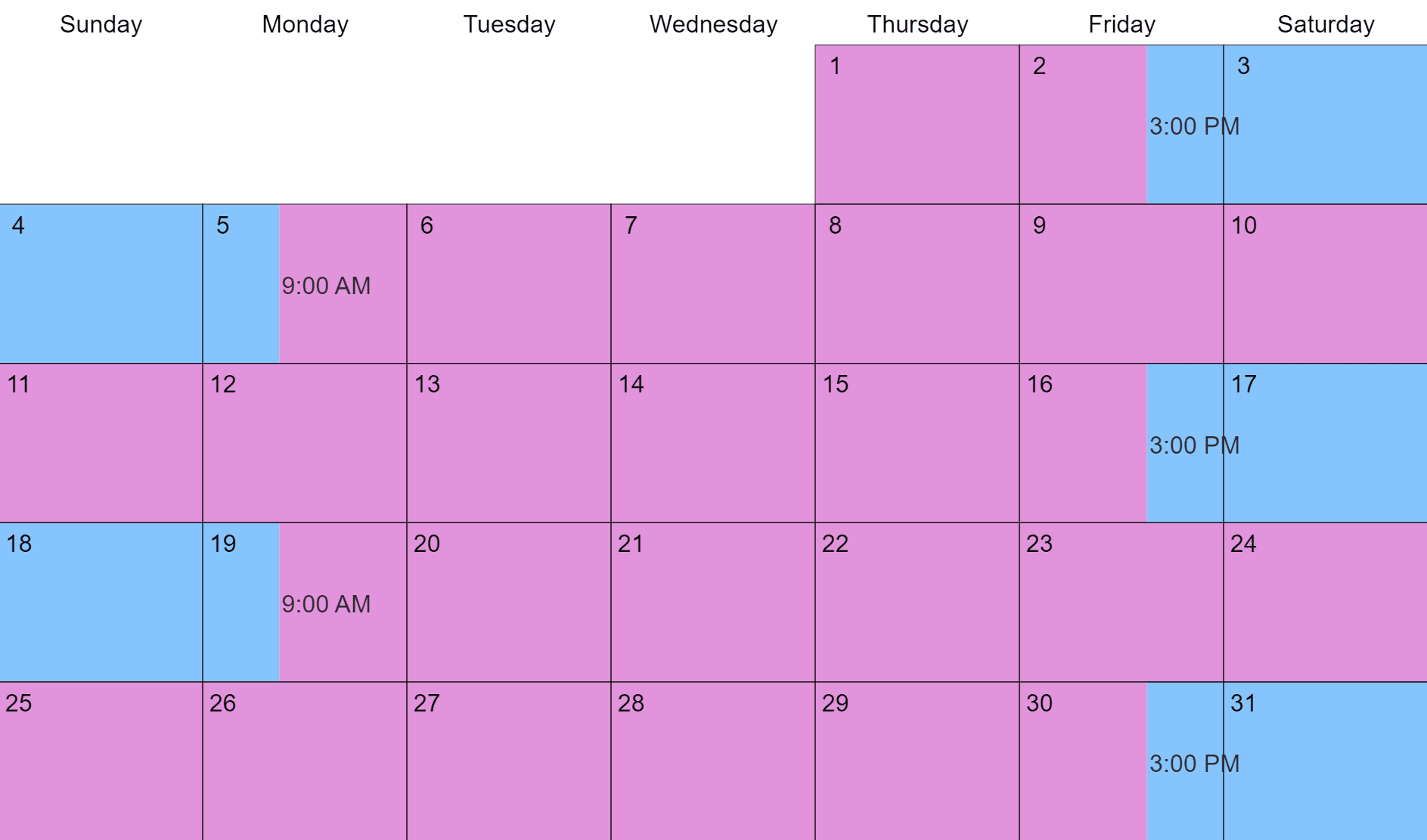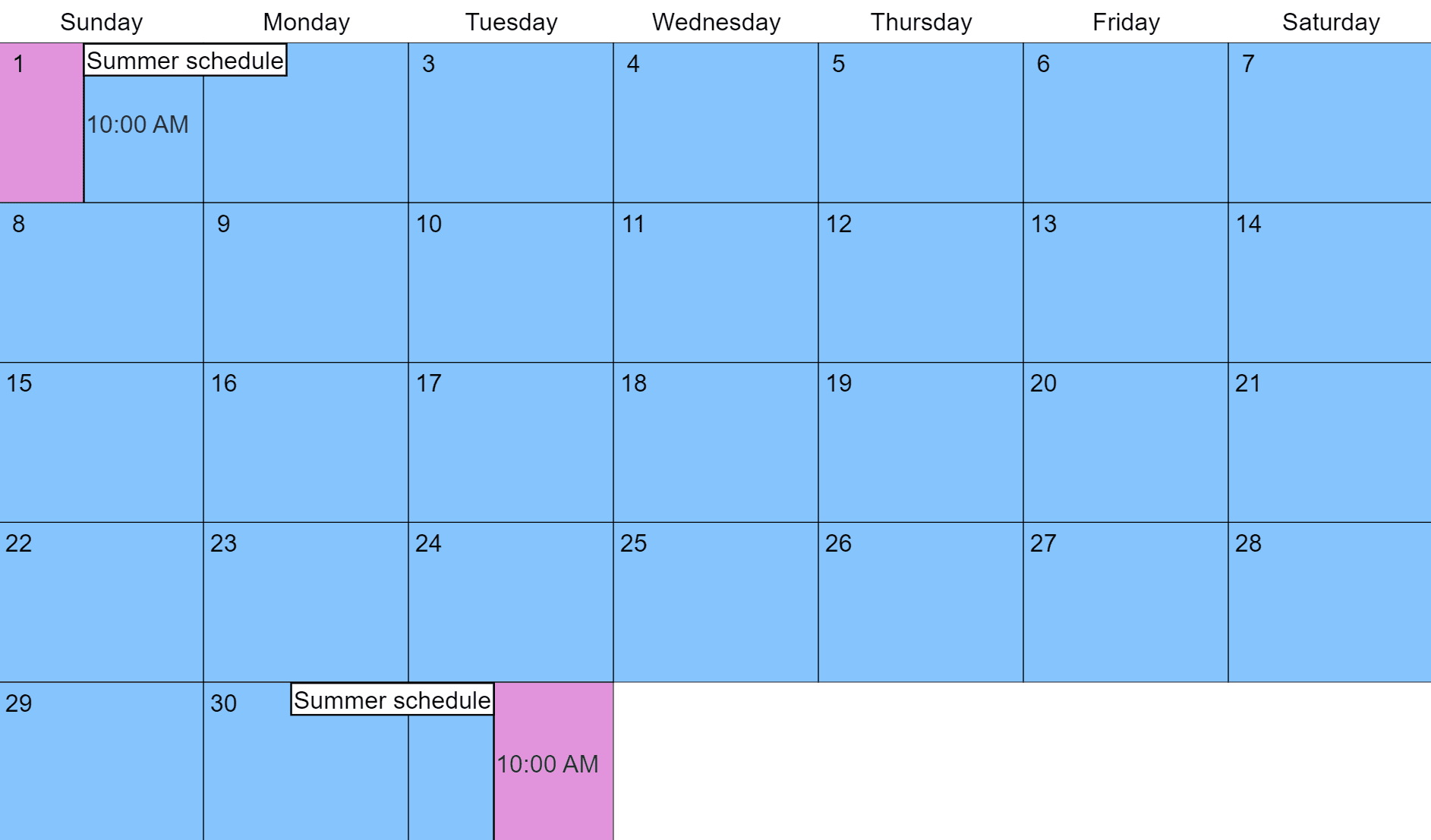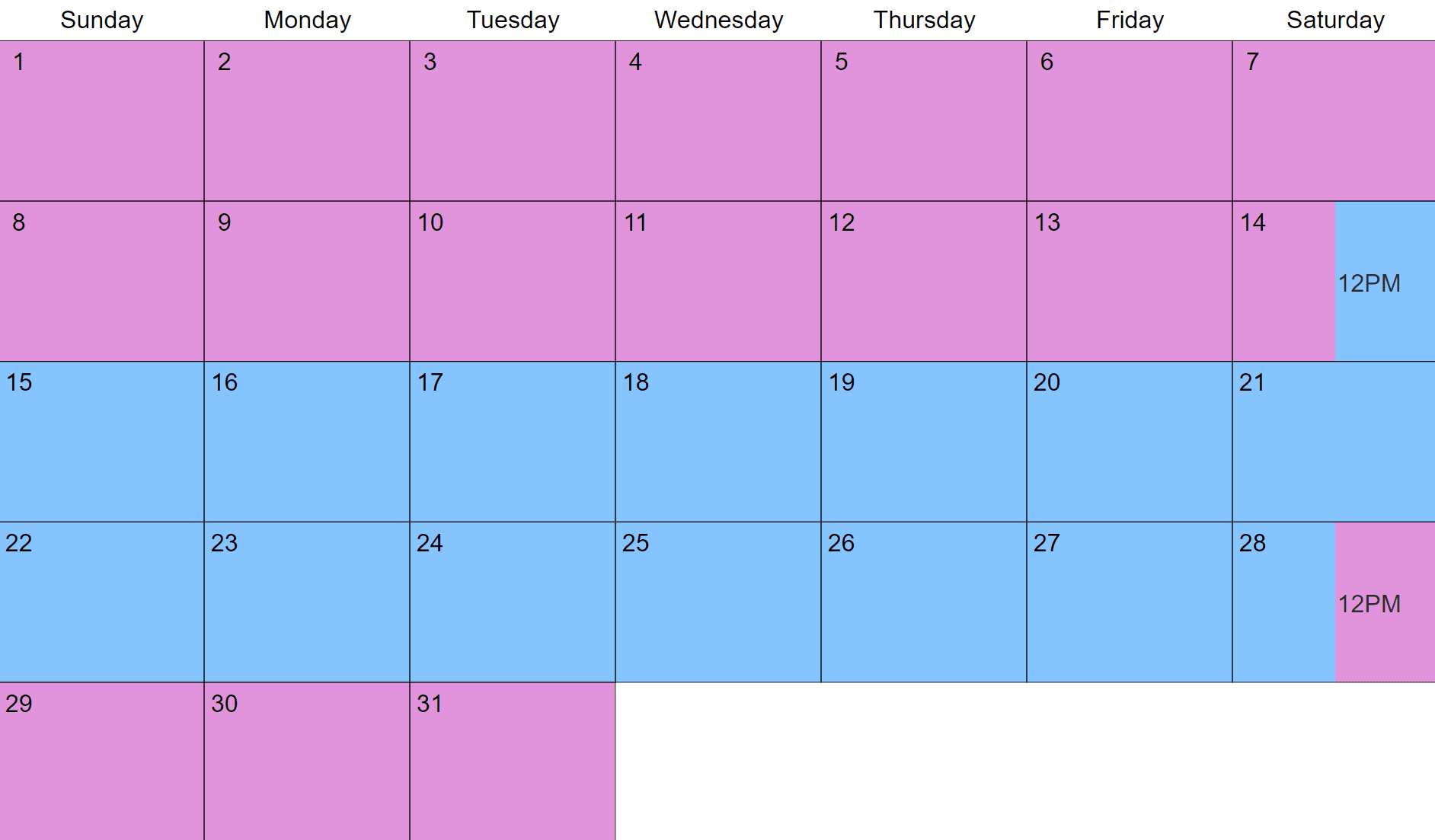Nevada Parenting Time Schedules (Custody & Visitation)
Parenting time schedules explain in written and visual form when a child will be in each parent's custody. Schedules are also called timesharing arrangements.
On this page
When parents agree, they choose a schedule together as part of their parenting plan. A judge must approve for it to become part of the final custody order.
When parents disagree, they each propose the schedule they believe is best for their child (sometimes as part of a proposed parenting plan). The judge can order either proposal or something different.
Things to consider when choosing a schedule
Choose a schedule based on the following.
Your child's age
You'll want to choose an age-appropriate schedule so as not to interfere with your child's development.
Keep the following in mind for each age group:
- Infants should have a few short visits with the noncustodial parent built around their feeding and sleep schedules. In joint physical custody situations, you can have more frequent visits and, eventually, overnights.
- Toddlers need time to connect with both parents throughout the week.
- Older children can handle being away for a week or more and may have commitments like sports practice to account for.
- Teenagers generally don't like to switch homes frequently. They need time for school commitments, extracurriculars and, possibly, work.
Your schedule will need to change as your child matures. Some parents agree to use a step-up parenting plan, which gradually increases one parent's time under certain conditions. For example, you might allow your infant to spend overnights with their noncustodial parent once they start bottle feeding.
Parents' schedules
Make sure each parent will be available for the time they're given.
The work shifts of parents working as doctors, firefighters and law enforcement officers can change every couple of weeks. In this case, you might forgo a traditional schedule and state that the parent's time will correspond with the days they don't have to work.
Allow for flexibility in case of illness and other unexpected circumstances, and consider letting parents make up time they miss.
Visits with relatives
Grandparents, siblings and other relatives can petition the court for visitation of a child, or parents may voluntarily allow the child to visit them. Planning when any regular visits will happen helps you avoid conflict.
Supervised visitation
High-conflict cases, like those involving domestic violence, may require supervised visitation or supervised exchanges.
Clark County has a court-approved center called Donna's House that, for a fee, supervises visits and exchanges. The professionals overseeing these visits may share notes with the court on the parent's interactions with the child. If the parent is making progress, the court can lift the supervision requirement.
A free option is to pick a friend or family member to be the supervisor.
Joint physical custody schedules
With joint physical custody, both parents have at least 40% of parenting time.
If you want parents to have nearly equal time, consider a 50/50 schedule.
An alternating weeks schedule places the child in one parent's home for one week, then the other's for one week.

You can customize this to fit your situation with Custody X Change.
Consider the 2-2-5-5 schedule if you have a child who needs to see each parent more often. The child spends two days at one parent's home, then two days at the other's, returns to the first home for five days and completes the cycle with five days at the other's home.

You can customize this to fit your situation with Custody X Change.
If one parent has more availability than the other, consider a 60/40 schedule.
The 4-3 schedule places your child with one parent for four days of the week, then with the other for three days.

You can customize this to fit your situation with Custody X Change.
Primary physical custody schedules
With primary physical custody, the custodial parent has the child in their custody for more than 60% of the year. The noncustodial parent has visitation.
It's common for visits to take place during the weekend. The noncustodial parent may have every weekend…

You can customize this to fit your situation with Custody X Change.

You can customize this to fit your situation with Custody X Change.
…or specific weekends every month (e.g., 1st, 3rd and 5th weekends).

You can customize this to fit your situation with Custody X Change.
In this last schedule, if there's no fifth weekend, they'll just have the first and third weekends of the month.
Holidays, school breaks and vacations
Parents can continue using their regular schedule for holidays and school breaks or follow a different schedule.
It's common for parents to alternate holidays annually. For example, if one parent has the Fourth of July this year, the other will have it next year.

You can customize this to fit your situation with Custody X Change.
Some parents who have joint physical custody use summer for making up missed visits to ensure they each get at least 40% of the year. Besides that, they often split the summer evenly. One parent could have all of July while the other has August.

You can customize this to fit your situation with Custody X Change.
In a primary physical custody arrangement, parents can give the noncustodial parent more time than usual during summer.

You can customize this to fit your situation with Custody X Change.
For simplicity, you could align vacations with summer break.

You can customize this to fit your situation with Custody X Change.
Or, you could give each parent a certain amount of vacation time to use throughout the year. Your parenting plan or schedule proposal should include rules like how much notice a parent must give before taking the kids on vacation.

You can customize this to fit your situation with Custody X Change.
The easiest way to make a schedule
If you're like most parents, creating a custody and visitation schedule will feel daunting. How do you write something that meets legal requirements and doesn't leave any loose ends?
The Custody X Change app makes it easy. Either customize a schedule template, or click and drag in your custody calendar to make a schedule from scratch.

You can customize this to fit your situation with Custody X Change.
Then watch a full description appear in your custom parenting plan.

You can customize this to fit your situation with Custody X Change.
The combination of a visual and written schedule means your family will have no problem knowing who has the child when. Take advantage of Custody X Change to make your schedule as clear and thorough as can be.
